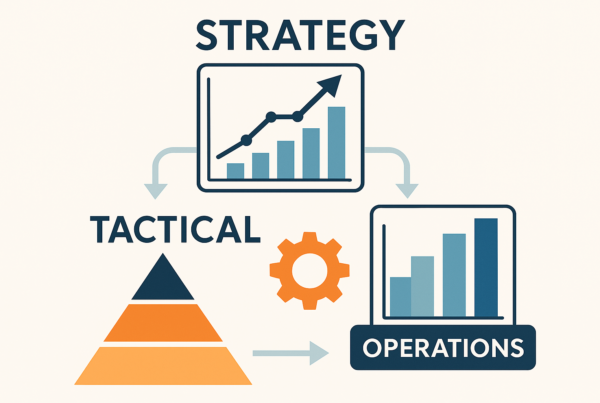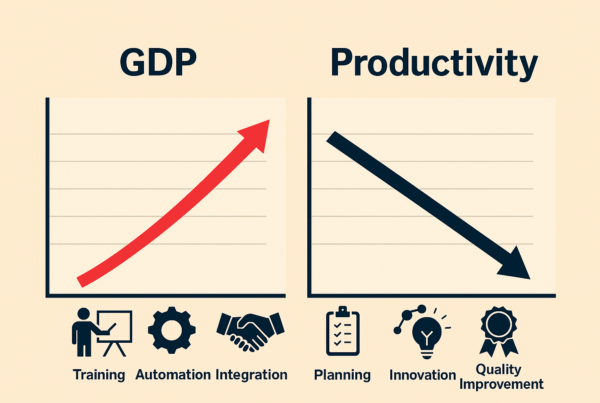You have a great business idea and it sounds amazing in your head. You start it up and work on it hard so that it starts to grow. Cash flow is low when you start but you understand it takes time for cash flow to grow. However, at some point, you hear that your friend also has a business and that his/her business is growing much faster than yours. Suddenly, you drop your original idea in pursuit of the next best thing. That works for a while, until you find out it is not the best system, and then you search for a new thing that is going to be better than what you have currently. While this jump to the next system is going on, no money and no progress are being made.
Welcome to the shiny object syndrome – one of the most parasitic phenomena that robs your business of time and thus robs you of making money.
The shiny object syndrome has plagued many entrepreneurs and is a major component to slow growth when starting off. In this article, we are going to explain this phenomena, explain why it is so parasitic, and then suggest some practical tools to help avoid chasing shiny objects.
What is the shiny object syndrome?
The shiny object syndrome is the phenomena where someone is constantly changing their focus/goals or systems. It is constantly distracting and mostly occurs in entrepreneurs as they are always looking for new ways of doing things. As an entrepreneur, many things excite us and we are surrounded by a network of like-minded people all doing different things. When we see how they make such progress, there is the tendency to drop our method and follow them. The reason that they are flourishing is because they are busy nurturing and caring for their ideas – they are putting in the effort and doing everything they can to make it work.
Symptoms of the shiny object syndrome are:
- Constantly changing systems such that nothing tangible exists for your efforts
- You find yourself modifying systems that do not need to be tweaked
- Actions that lead nowhere
- Lack of productivity
- Lack of a tangible strategy
Why is the shiny object syndrome problematic?
While moving to a new system may seem like a good idea, it has many caveats. Changing direction every time something newer and shinier comes along will not accumulate any progress – it will leave you confused and non-progressive. Jumping to a new idea does not give your original idea the time and effort needed to grow. Things grow and blossom when they are given lots of hours of effort. If there is anything worth doing, it is going to take time and effort.
We think that the grass is always greener on the other side. Maybe it is, but that is because that person took the time to nurture their business – they made it blossom. People who have nice grass have so because they allowed it to grow.

I have suffered from the shiny object syndrome, and it has led me on the road to nowhere many times. When I started the initial ideas phase of business start-up, I jumped from one passive system to the next (long-term investing, affiliate marketing, dividend investing, swing trading). What was the results of my waffling? Nothing. All I had done was blown a lot of time and some capital. Any one of these passive income strategies work – you need to commit to one for it to work. Changing directions every time something looks shinier will leave you confused and running in circles.
How do we overcome the shiny object syndrome?
Overcoming the shiny object syndrome requires mental fortitude and persistence. We advise on the following:
- Absolute focus is pivotal. The solution is a solid commitment to your plan. Focus on your main goals and try your hardest to not get sidetracked. There are many times when you are going to have to say “No”. A mentor can help you stay on track – in the same way that Warren Buffett told his personal pilot, Mark Flint, to focus on five major goals instead of Flint’s proposed twenty-five.
- Understand that there is no perfect system – every system has some imperfections. If engineers stopped at developing internal combustion engines because they had very low thermal efficiency, then there would be no cars. The more time you spend wasting time finding the perfect money-maker system, the more time you are wasting on enhancing your own business. Jack Schwager states that there are millions of ways to make money, but they are difficult to find.
- Start small. By optimizing your start, you are giving yourself the best chance of developing strong business habits. Strong business habits can take your business into the stratosphere in the long-term. You can read our article about building business habits here: https://nikshen.com/building-the-habits-of-successful-business-practices-trishen-naidoo/
- Be hesitant about changing your plan. Dr. Brett Steenbarger explains that you should only change your system to adapt to changing markets. So if you have been selling lemonade for a long time while customers are now drinking caffeinated sports drink, then you should consider changing your approach to meet the needs of your market.
Closing thoughts
We are all victims of chasing the shiny object at some point, and it is very prone in entrepreneurs. Therefore, we advise to understand the symptoms of it, and work hard at avoiding it. It requires mental fortitude and effort to overcome it. Remember to water your own grass, because no perfect money-making system exists in the real world. The grass is not always greener on the other side, and the object is not shinier. Have clarity off thought a purposeful focus.
Author
Trishen Naidoo is the co-director of Fulcrum Venture Capital (FVC), a start-up company based in Durban that focuses on social media marketing and investing. FVC have enlisted the services of Nikshen Consulting to assist in growing their business with the correct coaching and guidance.


![The shiny object syndrome [Trishen Naidoo]](https://nikshen.com/wp-content/uploads/2020/10/ShiningObjects.jpg)



This pointers are really good and they made me to think out of the box thanks a million may you grow from strength to strength
Thank you – Your feedback is valued. Should you have other topics of interest, do send us a note via the contact us page and we will attempt to cover it. Thanks and stay safe